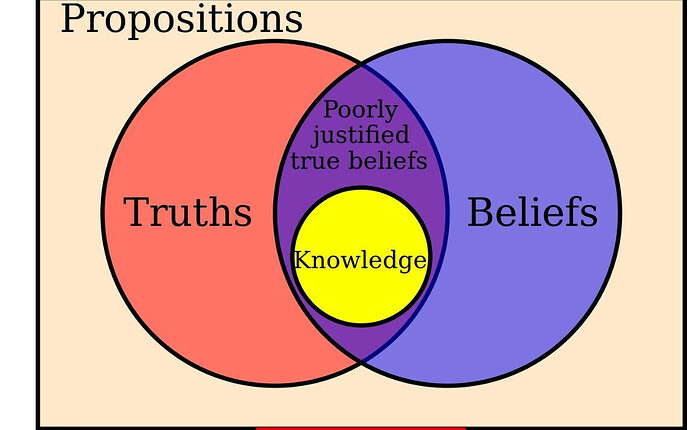The problem I realise is a difference of approach to the question. Yours is a more literal/ semantic one, more focused on the various definitions of the words, ‘Atheist’, ‘Agnostic’, ‘Know’, ‘Believe’, ‘Opinion’ etc.
I however take a more mathematical approach to theistic and philosophic discussion, using, algebra similarly to modern philosophy. The biggest misconception or misunderstanding I’ve found here is the idea that imagined things can’t be ‘real’, when, we live in a society built on imagined concepts, with things like banks and governments all using these things to function. If what you call ‘real’ is built on the pillars of the imagined and imaginative with concepts, like money and law what is it that people also equally trust faith, god and religions, as I don’t believe all believers have been brainwashed, exploitered or misinformed, and know people who gain a lot from their faith.
Second was an argument against the collation of agnostic and atheist as there is an important difference as I would say agnosticism is the belief that god’s existence cant be known as apposed to the idea that gods existence isn’t known.
If we say “we cant know if god exists”, or if we rephrase it, “the existence of god can’t be known” , or, “the knowledge of gods existence is something that cant be known”. We are of the belief there will never be proof for, or against god, as the nature of what is god is undefinable. (This is what I would describe as an agnostic)
If we say “we don’t know if god exists”, or, “the knowledge of gods existence is something that isn’t known”. It suggests a belief that it’s objectively impossible to find proof for god or that god doesn’t exist until their is evidence, so you would know the answer if you could know everything . (This is what I would describe as an atheist)
This is quite a distinction as the latter suggests that the question could be answered if you were all knowing, the former suggests the answer can never be known.
The last point I was making (as just an idea/personal belief) about god was that if as an agnostic thinks " the nature of god is undefinable", maybe we could also argue that, “god is something(or anything) that has no definition” similarly to what god of the gaps is arguing, however using this to try and understand the appeal of faith.
In response to
You see if you think of the question as a math problem you can learn from the unknown.
How to you know what is unknown? In algebra/ math we use unknowns like ‘x’ all the time. To calculate what you don’t know all you you need is an equation,
If what we don’t (yet) know is = ‘u’
and what is known = ‘k’
then everything that can be known must = k+u
so if we use what this to make an equation for the value ‘u’ as
u= (k+u) - k
or in other words what is unknown is equal to, everything that can be known, excluding what is already known.
God is unknowable because there is nothing that you could know that would fairly prove god or disprove god as some gods have omnipotence which means theists have the ability to evade the logic of any argument by saying a god has a power above that or any logic. If all knowledge is based on fact and evidence you can never know something that lives beyond fact, you will only ever be able to make an assumption about god/ the existence of god.
Hope this clears the misunderstanding.
